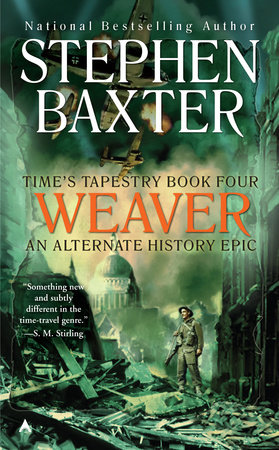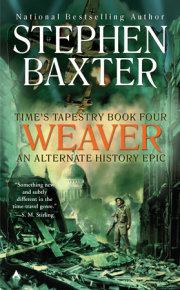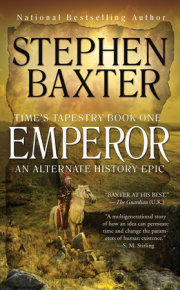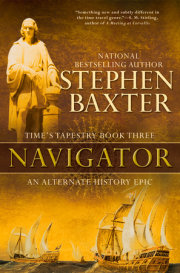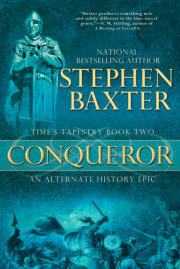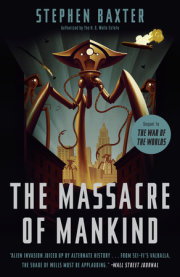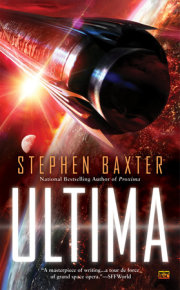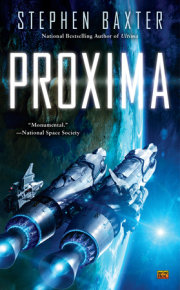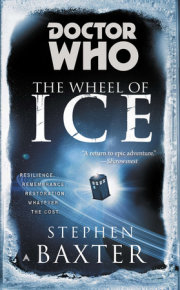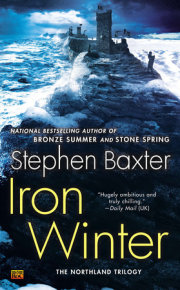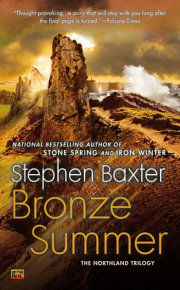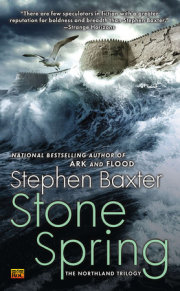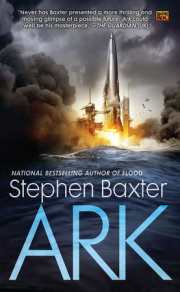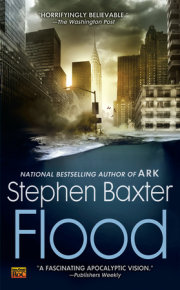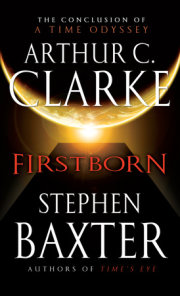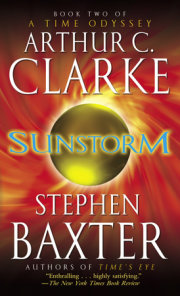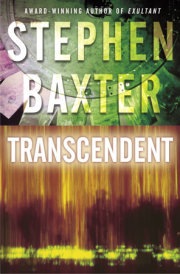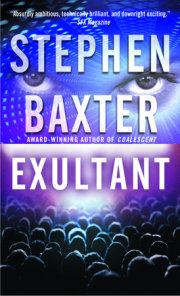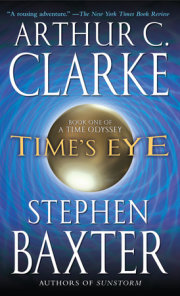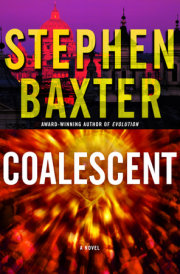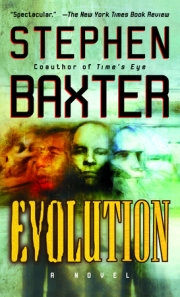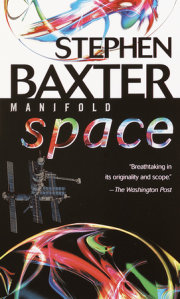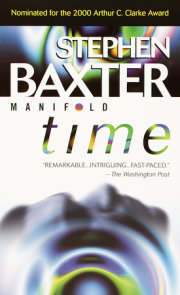Time’s Tapestry Books
EMPEROR
CONQUEROR
NAVIGATOR
WEAVER
THE BERKLEY PUBLISHING GROUP
Published by the Penguin Group
Penguin Group (USA) Inc.
375 Hudson Street, New York, New York 10014, USA
Penguin Group (Canada), 90 Eglinton Avenue East, Suite 700, Toronto, Ontario M4P 2Y3, Canada
(a division of Pearson Penguin Canada Inc.)
Penguin Books Ltd., 80 Strand, London WC2R ORL, England
Penguin Group Ireland, 25 St. Stephen’s Green, Dublin 2, Ireland (a division of Penguin Books Ltd.)
Penguin Group (Australia), 250 Camberwell Road, Camberwell, Victoria 3124, Australia
(a division of Pearson Australia Group Pty. Ltd.)
Penguin Books India Pvt. Ltd., 11 Community Centre, Panchsheel Park, New Delhi-110 017, India
Penguin Group (NZ), 67 Apollo Drive, Rosedale, North Shore 0632, New Zealand
(a division of Pearson New Zealand Ltd.)
Penguin Books (South Africa) (Pty.) Ltd., 24 Sturdee Avenue, Rosebank, Johannesburg 2196,
South Africa
Penguin Books Ltd., Registered Offices: 80 Strand, London WC2R ORL, England
This is a work of fiction. Names, characters, places, and incidents either are the product of the author’s imagination or are used fictitiously, and any resemblance to actual persons, living or dead, business establishments, events, or locales is entirely coincidental. The publisher does not have any control over and does not assume any responsibility for author or third-party websites or their content.
WEAVER
Copyright © 2008 by Orion Books.
All rights reserved.
No part of this book may be reproduced, scanned, or distributed in any printed or electronic form without permission. Please do not participate in or encourage piracy of copyrighted materials in violation of the author’s rights. Purchase only authorized editions.
ACE and the “A design are trademarks belonging to Penguin Group (USA) Inc.
Table of Contents
Title Page
Copyright Page
Prologue
Part I
Chapter I
Chapter II
Chapter III
Chapter IV
Chapter V
Chapter VI
Chapter VII
Chapter VIII
Chapter IX
Chapter X
Chapter XI
Chapter XII
Chapter XIII
Chapter XIV
Chapter XV
Chapter XVI
Chapter XVII
Chapter XVIII
Chapter XIX
Chapter XX
Chapter XXI
Chapter XXII
Chapter XXIII
Chapter XXIV
Chapter XXV
Chapter XXVI
Chapter XXVII
Chapter XXVIII
Chapter XXIX
Chapter XXX
Chapter XXXI
Chapter XXXII
Chapter XXXIII
Chapter XXXIV
Part II
Chapter I
Chapter II
Chapter III
Chapter IV
Chapter V
Chapter VI
Chapter VII
Chapter VIII
Chapter IX
Chapter X
Chapter XI
Chapter XII
Chapter XIII
Chapter XIV
Chapter XV
Chapter XVI
Chapter XVII
Chapter XVIII
Chapter XIX
Chapter XX
Chapter XXI
Chapter XXII
Chapter XXIII
Chapter XXIV
Chapter XXV
Chapter XXVI
Chapter XXVII
Part III
Chapter I
Chapter II
Chapter III
Chapter IV
Chapter V
Chapter VI
Chapter VII
Chapter VIII
Chapter IX
Chapter X
Chapter XI
Chapter XII
Chapter XIII
Chapter XIV
Chapter XV
Chapter XVI
Chapter XVII
Epilogue
Afterword
Time’s Tapestry
AD 1492
‘As mapped by myself; in which the long warp threads are the history of the whole world; and the wefts which run from selvedge to selvedge are distortions of that history, deflected by a Weaver unknown; be he human, divine or satanic ...’
FRIAR GEOFFREY COTESFORD OF YORK
The Prophecy of Nectovelin
4BC
(Free translation from Latin, with acrostic preserved.)
Ah child! Bound in time’s tapestry, and yet you are born free
Come, let me sing to you of what there is and what will be,
Of all men and all gods, and of the mighty emperors three.
Named with a German name, a man will come with eyes of glass
Straddling horses large as houses bearing teeth like scimitars.
The trembling skies declare that Rome’s great son has come to earth
A little Greek his name will be. Whilst God-as-babe has birth
Roman force will ram the island’s neck into a noose of stone.
Emerging first in Brigantia, exalted later then in Rome!
Prostrate before a slavish god, at last he is revealed divine,
Embrace imperial will make dead marble of the Church’s shrine.
Remember this: We hold these truths self-evident to be -
I say to you that all men are created equal, free
Rights inalienable assured by the Maker’s attribute
Endowed with Life and Liberty and Happiness’ pursuit.
O child! thou tapestried in time, strike home! Strike at the root!
The Menologium of the Blessed Isolde
AD 418
(Free translation from Old English, with acrostic preserved.)
The Testament of Eadgyth of York
(Free translation from Old English.)
(Lines revealed in AD 1070)
In the last days
To the tail of the peacock
He will come:
The spider’s spawn, the Christ-bearer
The Dove.
And the Dove will fly east,
Wings strong, heart stout, mind clear.
God’s Engines will burn our ocean
And flame across the lands of spices.
All this I have witnessed
I and my mothers.
Send the Dove west! O, send him west!
(Lines revealed in AD 1481)
The Dragon stirs from his eastern throne,
Walks west.
The Feathered Serpent, plague-hardened,
Flies over ocean sea,
Flies east.
Serpent and Dragon, the mortal duel
And Serpent feasts on holy flesh.
All this I have witnessed
I and my mothers.
Send the Dove west! O, send him west!
PROLOGUE
APRIL 1940
I
The boy slept beside the calculating engine.
Rory walked into the room. The sleeper, Ben Kamen, lay slumped over his desk, bulky volumes of physics journals opened around him, pages of foolscap covered with his spidery Germanic handwriting.
Crammed full of the components of the Analyser, the room smelled sharply of electricity, an ozone tang that reminded Rory of the wind off the Irish Sea. But this was Cambridge, Massachusetts, and he was in MIT, an oasis of immense concrete buildings. He was a long way indeed from Ireland. Nobody knew he was here, what he was doing. His heart hammered, but his senses were clear, and he seemed to see every detail of the cluttered, brightly lit room.
He turned away from Ben to the bank of electromechanical equipment that dominated the room. The Differential Analyser was an engine for thinking. There were tables like draughtsmen’s workbenches, and banks of gears and wheels, rods and levers. This clattering machine modelled the world in the spinning of these wheels, the engaging of those gears. Earlier in the day Rory had fed it the data it needed, carefully tracing curves on the input tables, and manually calculating and calibrating the gear ratios. He ripped off a print of its results. The Godel solutions were ready.
And Ben Kamen was ready too. Sleeping, Ben looked very young, younger than his twenty-five years. There was nothing about him to suggest his origin, as an Austrian Jew. One hand still held his fountain pen; the other was folded under his left cheek. His features were small, his skin pale.
Rory looked over what was assembled here: the brooding machine, the boy. This was the Loom, as he and Ben had come to call it, a machine of electromechanics and human flesh which - so they believed, so their theories indicated - could be used to change the warp and weft of the tapestry of time itself. And yet none of it was his, Rory’s. Not the Vannevar Bush Analyser which was being loaned to the two of them by MIT; they were students of the Institute of Advanced Studies at Princeton, and they had come here to Cambridge ostensibly to run complex relativistic models with the Analyser. Not the dreaming boy himself - and still less the contents of his head. All that Rory O’Malley owned was the will, to bring these components together, to make it so.
Rory pulled a lock of black hair back from Ben’s brow. He wore it too long, Rory thought. Ben didn’t stir, and Rory wasn’t surprised. The sleeping draught he had poured into Ben’s midnight coffee was strong enough to ensure that. Ever since their time together serving in the International Brigade in Spain Rory had always been fond of Ben, poor, deep, intense Ben. But he needed him too, or at least the peculiar abilities locked up in that head of his. Rory saw no great contradiction in this mixture of manipulation and affection. He was intent after all on nothing less than a cleansing of history, a reversal of the greatest crime ever committed. What was a little subterfuge compared to that?
He pulled a scrap of paper from his jacket pocket. It bore a poem of sixteen lines in English, translated roughly into Latin. He scanned it one last time. This was the core of his project, a mandate to history laden with all the meaning and purpose he could cram into it. Now these words would be sent out into the cosmos, crackling along Godel’s closed timelike curves like Morse dots and dashes on a telegraph wire - all the way from the future to the past, where some other dreaming head would receive it. All he had to do was to read to Rory, read out the Gödel trajectories computed by the Analyser, read the bit of doggerel. That was all, like reading to a child. And everything would change.
Ben stirred, murmuring. Rory wondered where in the many dimensions of space and time his animus wandered now.
Rory began to read. ‘“Ah child! Bound in time’s tapestry, and yet you are born free/Come, let me sing to you of what there is and what will be ...’
The boy slept beside the calculating engine.
And then—
II
Julia Fiveash seduced Ben Kamen. No, she consumed him.
She took him inside three days of her arrival in Princeton from England. He couldn’t have stopped her if he’d tried. He wasn’t a virgin, with men or women, but after she pushed him to the carpet of his room and wrapped him in her long English limbs he felt as if he had been, before.
The second time they made love it was actually in the study of his mentor, Kurt Gödel. And Ben started to fret about her motives.
He lay on Gödel’s sofa, his jacket pulled over his crotch for modesty. Julia, boldly unclothed, stalked around Gödel’s room, flicking through the papers on his desk, running her delicate fingertip over the books on the shelves. Many of the books were still in their boxes, for Gödel had not been here long; reluctant to leave his beloved Vienna, he had hesitated until the last possible minute, when the Nazis had already started to roll up Europe like a giant carpet.
Julia’s golden hair shone in a shaft of dusty sunlight. She was tall, her limbs long and muscular, her belly flat, her breasts small; she walked like an animal, balanced, confident. Her body was the product of a lifetime of English privilege, Ben thought, a life of horse-riding and tennis, her sexuality mapped by one healthy Englishman after another. She had conquered Ben as easily as the English had conquered much of the planet.
He longed for a cigarette, but he knew he dare not light up in Gödel’s own room.
He plucked up his courage to challenge her. ‘What are we doing here, Julia? What do you want?’
She laughed, a throaty sound. She was twenty-eight, three years older than he was; her age showed in her voice. ‘That’s not a very nice question. What do you think I want?’
‘I don’t know yet. Something to do with Gödel. You used me to get you in here, didn’t you? Into this study.’
‘Can you blame me for that? Kurt Gödel is the world’s greatest logician. He’s building a new mathematics, so they say. Or dismantling the old. Something like that, isn’t it true?’
‘You’re a historian. You’re attached to Princeton University, not this institute of math and physics. Why would you care about Gödel?’
‘You’re ever so suspicious, aren’t you? But those suspicions didn’t make you fight me off. He’s such a funny little man, isn’t he? Short and shabby with that high brow and his thick glasses, scuttling like a rabbit in his winter coat.’
‘He’s been known to take lovers among his students. Despite his unprepossessing looks. I mean, he’s still only in his thirties. Back in Vienna—’
‘The first time I spotted Gödel he was walking with Einstein. Now you can’t miss Einstein, can you? Do you know, he was walking in carpet slippers, out in the middle of the street! Is he friendly with Gödel, do you know?’
‘They met in 1933, I believe. Friends - I don’t know. Einstein is the most exotic of the European beasts here in this American zoo, I suppose. But even Einstein had to flee Hitler.’
‘Ah, Hitler! I’ve been in his presence, you know.’
‘Whose?’
‘Hitler’s. I shook his hand. I wouldn’t claim to have met him, exactly; I doubt he remembers me at all. I was an exchange student. I wanted to see for myself what the Germans were up to, rather than swallow the usual horrid propaganda. The transformation of that country from economic ruin in just a few years is remarkable. They made us very welcome. Hitler has a very striking presence; he has a way of looking through you. Goebbels, on the other hand, pinched my bum.’
He laughed.
‘And now you’ve all come scuttling here, haven’t you? Running from the monster, all the way to America.’ She wrinkled her nose. ‘Such a poky, dusty room, to be lodging a world-class mind. Gödel should have come to Oxford. Einstein too. Better than this. I mean, they have cloisters built of brick! Bertrand Russell says that Princeton is as like Oxford as monkeys could make it.’ She laughed prettily.
‘Perhaps Einstein and Gödel feel safer here than in an England which contains such people as you.’
‘You’re not very nice to me, are you, all things considered? Anyway Gödel would be under no threat in the Reich. He’s not even a Jew.’ She began plucking books from the shelf, and flicked through their worn pages.
Ben gathered his clothes from where they had been scattered on the floor, and began to pull them on. ‘You’ve had your fun. Maybe it’s time you told me what you want from me.’
‘Well, there are rumours about you,’ she said smoothly. ‘You and your professor. Look at these titles. Being And Time by Martin Heidegger. An Experiment With Time by John William Dunne. On the Phenomenology of the Consciousness of Internal Time, Edmund Husserl. You worked with Gödel in Vienna, and now that he is here at the IAS you’re starting to work with him again, aren’t you? But not on the outer reaches of mathematical logic.’ She glanced at a pencil note on the flyleaf of the Husserl, scrawled by Gödel himself. ‘My German is still poor ... “The distinction between physical time and internal time-consciousness. Is that right?’ As she leafed through the books there was a scent of dust, and stale tobacco - of Vienna. ‘Ah. The Time Machine by H.G. Wells. Thought I’d find that here!’
He began to feel defensive, shut in, a feeling he remembered from Vienna, when he had been the target of the ‘anti-relativity clubs’ and other anti-Semitic groups. ‘How did you find all this out? Slept with half the faculty, did you?’
She smiled at him, naked, entirely composed. ‘And I know what else you’ve been working on. Something even Gödel doesn’t know about. Something to do with relativity, and all this mushy stuff about internal time and the mind ... Something that goes beyond mere theory. And I know you haven’t been working alone. I’m talking about Rory O’Malley.’
‘What do you know about Rory?’
‘I have a feeling I know more about your Irish friend than you do.’ She ran a languid finger up the length of his bare arm; he shivered, despite himself, and buttoned his shirt. ‘Come on, Ben. Spill the beans. The rumour is—’
‘Yes?’
‘That you and your Irish boyfriend have built a time machine.’
He hesitated. ‘It’s not like Wells’s fantasy, not at all. And we played with ideas - concepts - that’s all. We went through some of the calculations—’
‘Are you sure that’s all?’
‘Or course I’m sure! We haven’t done anything. We decided we mustn’t, in fact, because—’
‘Rory O’Malley isn’t terribly discreet. Surely you know that much about him. That’s not what he’s been saying.’
As the import of her words sank home, Ben’s stomach clenched. Was it possible? But how, without his knowledge? Oh Rory, what have you done?
Julia saw his fear, and laughed at him. ‘I think you’d better give Rory a call. We’ve a lot to talk about.’
III
‘I studied physics,’ Rory said slowly. ‘I was a bright kid. I was fascinated by relativity. I bet there weren’t so many other fifteen-year-old students in Dublin in the 1920s who owned a copy of Einstein’s 1905 papers - still less who could read them in their original German.
‘But I was drawn to history as well. Why was a man like Einstein singled out for his Jewishness? Why, come to that, had the Christian church - I was an Irish Catholic - always been in such dreadful conflict with the Jews? So I began to study history. Religion. Philosophy ...’ He spoke uncertainly, plucking at his fingers.
Rory was dark, darker even than Ben. He joked that the Irish strain had been polluted by swarthy Spaniards washed ashore from the wreckage of the Armada. There was a trace of scar tissue at Rory’s neck, the relic of the Nationalist bullet that had nearly killed him in Spain. Rory was a stocky, bullish man, an Irishman who had made himself a place in America, and had embraced mortal danger in Spain. Yet he seemed intimidated sitting before Julia, who was dressed in her customary style, an almost mannish suit of jacket and trousers, with a shirt-like blouse and a loosely knotted neck-tie, her perfect face framed by cigarette smoke.
The three of them sat in Rory’s apartment, here at the leafy heart of Princeton. The living room was small but bright, with long sash windows pulled open to admit the green air of an American spring day. They sat on battered, grimy furniture amid loose piles of books, volumes on physics and history, on the roots of Christianity and the philosophical implications of Einstein’s relativity. It was a jumbled, disorganised, dusty room, but it reflected Rory O’Malley, Ben thought, as if it were a projection of his own mind.
It had taken a couple of weeks for Julia to set up this meeting. She hinted darkly that she had wanted some time to verify some aspects of Rory’s ‘account’ for herself, and she had arrived today with a slim briefcase, presumably containing the fruits of that research. Ben found himself gazing at the briefcase with dread.
And he felt uncomfortable at how Rory was opening up his soul, and Ben’s, to Julia’s interrogation.
He said sharply, ‘You don’t have to talk to her if you don’t want to, Rory. I mean, who is she?’
Rory looked at him bleakly. ‘Don’t you know?’
Julia just smiled.
‘I’ll tell you who she is,’ Rory said. ‘She’s an officer in the fucking SS. That’s who she is. She’s done more than shake Hitler’s hand.’
Ben stared at her, appalled.
Julia extracted a fresh cigarette from the silver box she carried. ‘Oh, don’t look so shocked, Benjamin. I apologise for keeping it from you. But you’d hardly have slept with me if you’d known, would you? Let’s get on with it. You met in Spain, during the Civil War.’
Hesitantly, uncomfortable, Rory spoke.
When only twenty-two, Rory had moved to New York from his native Dublin, ostensibly to study. But, a strong-minded idealist, he had quickly made a name for himself as an outspoken columnist. Then he had gone to Spain to work on a book on the seven-centuries-long history of coexistence and conflict between Christianity and Islam in the peninsula.
‘I was in Seville when it all kicked off. The Civil War. The city fell to Franco’s Nationalists within days. The bloodshed was worse after the cities fell, as the Nationalists took reprisals. So I fled north, to the Republican areas.’
‘And there he met you?’ Julia asked Ben.
Ben said reluctantly, ‘I had already seen enough of the fascists in Germany. I went out to fight in the International Brigades. I never went back to Austria after that. I got some help from the Americans in my brigade, and they eventually got me into the country, and a place here at Princeton to continue my studies.’
Julia said briskly, ‘I’ve never been terribly impressed by the Spaniards. They had all that wealth, a global empire, gold from the Incas and the Aztecs. And they blew the lot on dynastic wars within a century of Columbus. As for their Civil War, what a pointless conflict that was!’
‘Three hundred and fifty thousand died,’ Rory said angrily. ‘Many of them to German and Italian bombs and bullets.’
‘New ways of fighting wars were rehearsed. An imperial nation was reduced to a testing ground for the weapons of superior powers. So much for Spain!’
Ben snapped, ‘You’re damn cold, Julia.’
Julia laughed. ‘No. Just realistic. Were you lovers?’
They spoke at the same time. ‘No,’ said Rory, and, ‘Only once,’ said Ben, more wistfully.
‘And it was in pillow talk in Spain, I suppose, that you began to dream of time machines.’
‘It was a pooling of interests,’ Ben said.
Rory said, ‘Studying history, I had come to feel a vast dissatisfaction. It need not have been this way! All the suffering, all the blood spilled - especially that provoked by religions, by prophets of peace. I wondered if it need be so - I longed for it not to be so.’ He glanced at Ben. ‘Then there was Ben’s idle talk of Godel, this eccentric mathematical genius who twisted Einstein’s equations and imagined it might be possible to reach out, around what he called “closed timelike curves, to touch the past...’
‘That and my dreams,’ Ben said.
Julia eyed him. ‘What dreams?’
‘I have always had intense dreams. Often they are like memories of visits to scenes in the past - and the future. Once or twice—’
‘Go on.’
Rory said, ‘There was one dream, of the bullet which nearly killed me.’ He touched his neck.
‘You are precognitive,’ Julia said to Ben.
‘So John William Dunne might say. He might speak of my animus floating free in a multidimensional spacetime.’
‘Is that what you believe?’
‘No.’ He sighed. ‘I’m one of the most rational people you’re likely to meet, Julia. I don’t even believe in God. And yet others believe such powers of me. Isn’t that an irony?’
‘And so from all this,’ Julia said, ‘from hints of precognition, from Gödel’s speculation about travel into the past, you began to design a time machine.’
‘Not a machine,’ Rory said. ‘Though we gave it a machine-like name.’
‘The Loom.’
‘Yes. But it’s a method, really.’
‘A method for touching the past. For changing it. Is that right? And after Spain you came to this institute, where you worked together on realising your “method. You went so far as to wangle time on a calculating engine in Massachusetts. And you, Rory, began to work out, if you could make a change to the history that you found so unsatisfactory, exactly what change should be made.’
Rory fell silent. Ben stared at him.
‘Oh, come now. If you don’t tell him, I can - and will.’ She patted her briefcase.
‘Very well,’ Rory blurted. ‘It was Nicea.’
Ben was bewildered. ‘Nicea?’
Julia smiled. ‘You’re clearly not as intimately acquainted with Christian history as your little friend here, Ben. Nicea, 325 AD. Where the Emperor Constantine convened his great Church council.’
‘Constantine!’ Rory spat. ‘It was all his fault!’
IV
‘Ah, the Romans,’ Julia said. ‘They were Aryans, you know, without a doubt. Hitler has the scholarship to prove it ... Before Constantine,’ she sneered, ‘Jesus was a god of the slaves. By establishing the Church as the state religion of Rome, Constantine saved Christianity for the future.’
‘Only by making it into a reflection of Rome itself! And it is that Roman autocracy and intolerance that has been at the root of the evil done in Christ’s name ever since.’
‘And so you had the temerity to cook up a plan. Didn’t you? A scheme to use your Loom of time to unpick a few threads of history.’
‘You told me none of this,’ Ben accused Rory.
‘Of course not,’ he said miserably, still avoiding his eyes. ‘Because you would have stopped me.’
‘He worked out a message to send to the past,’ Julia said brightly. ‘A sort of retrospective prophecy, yes? You meant to send it to the age of Emperor Claudius, I gather, and his invasion of Britain. It was going to contain news about the future - and a little comical nonsense about democracy—’
‘The republican age was the best of Rome,’ Rory said defiantly. ‘It inspired America centuries later. I wanted to give them hope.’
‘Who?’ Ben demanded.
‘You know how it works, Ben. We can’t target an individual in the past. We can only broadcast. And hope there are minds as receptive as yours - natural radio receivers, waiting to pick up news from the future.’
Julia said, ‘You put in the prophetic stuff as a sort of lure, didn’t you, Rory? You sent it back beyond Claudius to the year of Christ’s birth, to catch the attention of the early Christians. You hoped to snag your dupe in the past by giving him a bit of foreknowledge that could make him powerful or rich, for instance about the building of Hadrian’s wall. And you hoped that that power would be used as you intended: to fulfil your ultimate command.’
‘To do what?’ Ben asked.
Julia grinned. ‘Why, to kill the Emperor Constantine!’
Ben found himself on the edge of panic. ‘Rory - we discussed the dangers - what gives you the right to make such choices?’
‘What gives us the right not to use such a gift?’
Ben thought fast. ‘But this is just fantasy. Just talk. For Constantine was not cut down before Nicea, was he? And the Church was not restored to some state of innocence. The Pope still sits in Rome.’
‘Rory failed,’ Julia said.
‘Well, I can’t deny that,’ Rory said.
‘But he made the attempt, Ben.’
‘That’s impossible.’
‘No.’ She smiled. ‘I have proof.’
Rory’s eyes narrowed. ‘What do you mean by that?’
‘The Party has a rather good research institution. It’s called the Ahnenerbe - it reports to Himmler, you know. Some quite innovative research into racial origins. I wrote to them ...’ She opened her briefcase and extracted a battered volume. It was a history of Rome.
Her Nazi scholars had not been able to retrieve Rory’s testament in full. But elements of it had been recorded in an autobiographical work by the Emperor Claudius. That work too was lost, but there were references to it in other histories, from which, with a little care and some guesswork, some of Rory’s lines had been reconstructed. She passed her book to Ben, opening it at a marked page. He read in disbelief, the text pale on old, yellowed paper:
Remember this: We hold these truths self-evident to be -
I say to you that all men are created equal, free
Rights inalienable assured by the Maker’s attribute
Endowed with Life and Liberty and Happiness’ pursuit.
O child! thou tapestried in time, strike home! Strike at the root! ...
‘By all that’s holy,’ Ben said, his heart hammering.
Julia smiled. ‘Life, liberty and the pursuit of happiness. How delightfully gauche!’
‘It seems I did it,’ Rory said, his own eyes wide. ‘These are my own words, cooked up in 1940, transmitted through the centuries, and now written down in this battered old history book. I never saw the proof before. I failed in my plan - Constantine survived - but the Loom works.’ He laughed, but it was a brittle sound.
‘You could not have done this,’ Ben said weakly. ‘I am an integral part of the Loom - my supposed precognition—’
‘He drugged you,’ Julia said simply. ‘Drugged you, and used you in your sleep. Would you have stopped him?’
‘Of course I would.’
‘Why? Because you’re a fan of Constantine?’
‘No.’ He looked at Rory with gathering horror. ‘Because I have come to believe that the Loom, if ever operated, is a monstrous danger. The Loom is a weapon that destroys history, not creates it!’
‘Yet it works,’ Rory said flatly.
‘Yes,’ Julia said. ‘Hitler despises Christianity, you know. He says it amounts to the systematic cultivation of failure. I think he’ll rather approve of your attempts to destabilise the faith, Rory.’
‘What do you mean by that?’ Rory snapped.
‘I really believe the Ahnenerbe is the place to carry forward this project of yours, don’t you think? With proper funding and some decent researchers - not some half-trained Irish monkey and a mixed-up Jewish dreamer - with a better calculating machine than the antiquated gadget at MIT—’
‘You want to give a time machine to the Nazis?’ Ben felt weak. ‘Oh, that’s a good plan.’
Rory asked, ‘So you’re planning to support Hitler?’
Julia shrugged. ‘What do you care? Ireland is neutral in the war.’
‘But your own country isn’t.’ Rory stood up. ‘You English aristocrats are all the same. You and your bloody empire. Now it’s better Hitler than a Labour government, eh? Well, you’re not going to give my work to that gang of thugs.’ He raised a fist and closed on her.
It happened in an instant. From somewhere Julia produced a gun. Ben had time to notice how small it was, how exquisitely made, how expensive it looked. She raised the pretty, silver-plated pistol. She shot Rory in the heart. Rory looked surprised, and he stared down at the bloody mess of his chest. He shuddered; he crumpled and fell.
‘Well, that’s a bit unfortunate,’ Julia said. ‘We have made rather a mess of the apartment, haven’t we? I don’t need him. No doubt everything’s here among these books and papers. But, of course, I need you. She turned to Ben and smiled. ‘You and your dreams.’
‘You want to hand me over to your Ahnenerbe. To the Germans.’
‘They’re here already. All around the building.’
‘They’ll love you in Nazi Germany,’ he said.
‘Oh, they will. They do! Now, will you come with me quietly or—’
He was still holding the heavy history book. He slammed it as hard as he could against her temple. He moved suddenly, giving her no notice at all. She fell, even more quickly than Rory, her gun spilling from her hand.
Ben looked at the mess, Julia sprawled across Rory’s legs, the silver gun on the floor. He ought to destroy any evidence of their work. Take the gun. Kill Julia.
He knew he could not. His head was filled with flight, nothing more. All he wanted was to run until he could run no further, out of Princeton, out of America - all the way to England, perhaps, where at least he could be sure there were no Nazis.
But first he had to survive this day, uncaptured. He headed for the door, watching for Julia’s German supporters.
I
INVADER
MAY-SEPTEMBER 1940
I
31 May - 1 June 1940
Mary Wooler heard about the desperate evacuation from France on the evening of the Friday, 31 May, on the BBC news. It was the first time the public had been told about it. The operation had already been underway for five days.
She spent a sleepless night, mostly on the phone to the War Office, trying to find out what had become of her son. It sounded as if the struggle to evacuate the British Expeditionary Force from Dunkirk was failing. It was chaotic, an unfolding disaster. Nevertheless she was told that elements of Gary’s division were scheduled to be brought back to Hastings, on the south coast, if they made it back at all. So that was where she had to be.
On the Saturday morning she set off from her rented apartment in London in her hired Austin Seven, with its white-painted bumpers and plastic visors on the headlamps, to drive down to the coast.
The drive ought to have been simple enough. Her plan was to head roughly south-south-east, passing through Croydon, Sevenoaks and Tunbridge Wells, before cutting through the Sussex countryside until she came to Hastings via a little place called Battle, where the English had once faced the Normans. That was the theory.
But she never knew where the hell she was. Even as she drove she saw gangs of workmen cutting down direction markers, and unscrewing metal plates with village names. No names! She was a journalist and historian who had always made her living from words, and she thought how odd it was that to protect their country the English were stripping it of its words, of the layer of meaning that gave the landscape its human context: words that were a mish-mash of Norman French and Norse and Old English and even a bit of Latin, relics of other tumultuous days, words like bullet holes. Well, it might or might not confuse General Guderian and his Panzers, but it sure as hell confused Mary.
Still, the sun was a beacon in the clear sky. She took her bearings from that and just kept on running south. It wasn’t that big a country, and she had to hit the coast in the end.
And meanwhile this first day of June was exquisitely lovely, one of those early summer days that England served up so effortlessly. Over a crumpled green carpet of fields and hedgerows, the birds soared like Spitfires. It didn’t make sense, Mary thought. How could all this coexist with the horrors of the European war, unfolding just a few tens of miles away? Either the war wasn’t real, or the summer’s day wasn’t; they didn’t fit in the same universe.
Once she was through the last of the inland towns and neared the coast, the signs of war became more evident. There were pillboxes at the road junctions, some of them so new you could see the concrete glisten, still wet. She was nervous every time she crossed a bridge, for the Home Guard were mining the bridges, Great War veterans and kids too young to be conscripted who might or might not know what they were doing with high explosives.
And then, when she got close enough to glimpse the sea from the higher ground, she came upon more traffic. Most of it was heading the other way, inland, a steady stream of private cars, families, mum, dad, the kids, the dog and the budgie in its cage, with roof racks piled high with suitcases and even bits of furniture. Despite the official orders to ‘stay put’, as Mary had heard the new Prime Minister Churchill saying on the BBC, whole towns were draining northward, looking for safety. And in among the fleeing English were refugees who must come from much further away, buses and lorries full of civilians, women and children and old folk, and a sprinkling of men of military age. Jammed in, grimy, exhausted, they stared out at the glistening English landscape as they passed.
At one crossroads there was a hold-up. An Army truck had thrown a tyre, and a couple of soldiers were labouring to replace it. The soldiers had stripped to their khaki shirts in the heat of the summer sun, and as they struggled with the heavy wheels they bantered and laughed, cigarettes dangling from their lips. The traffic had to inch past, the laden buses and trucks bumping up on the verge to get by.
Mary found herself stuck opposite a bus that was marked for Bexhill and Boreham Street. She looked into the eyes of one little boy, who sat on the lap of a woman, presumably his mother. He was maybe eight or nine. His hair was mussed, and the dirt on his face was streaked by dried tears. He wore what looked like a school blazer, but the colour was odd - bright orange, not the English fashion. He said something, but she couldn’t make out his lip pattern. But then he could be speaking French, or Dutch, or Walloon - maybe even German. She mouthed back, ‘Welcome to England.’
II
At last she came to a coastal town. But which one?
She tracked a rail line until she reached a small station. No name signs. A train stood here, evidently kept back for troops; somebody had chalked ‘WELCOME HOME BEF’ on the side of a wagon. It made sense that once you had the troops back you would rush them inland, away from the dangers of the coast. But there were no troops to be transported; the train stood idle.
. All rights reserved. No part of this excerpt may be reproduced or reprinted without permission in writing from the publisher.

